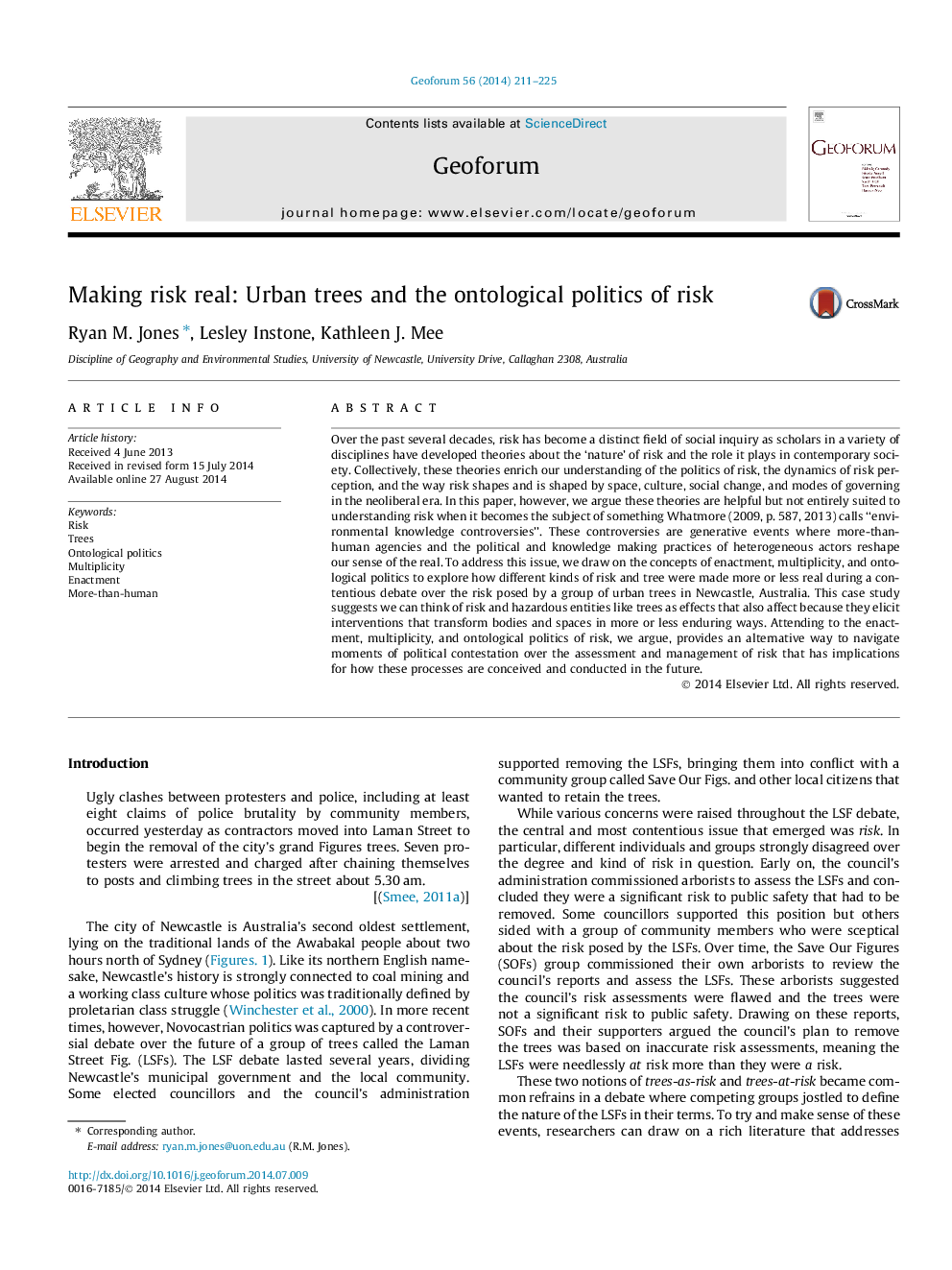| Article ID | Journal | Published Year | Pages | File Type |
|---|---|---|---|---|
| 5074054 | Geoforum | 2014 | 15 Pages |
Abstract
Over the past several decades, risk has become a distinct field of social inquiry as scholars in a variety of disciplines have developed theories about the 'nature' of risk and the role it plays in contemporary society. Collectively, these theories enrich our understanding of the politics of risk, the dynamics of risk perception, and the way risk shapes and is shaped by space, culture, social change, and modes of governing in the neoliberal era. In this paper, however, we argue these theories are helpful but not entirely suited to understanding risk when it becomes the subject of something Whatmore (2009, p. 587, 2013) calls “environmental knowledge controversies”. These controversies are generative events where more-than-human agencies and the political and knowledge making practices of heterogeneous actors reshape our sense of the real. To address this issue, we draw on the concepts of enactment, multiplicity, and ontological politics to explore how different kinds of risk and tree were made more or less real during a contentious debate over the risk posed by a group of urban trees in Newcastle, Australia. This case study suggests we can think of risk and hazardous entities like trees as effects that also affect because they elicit interventions that transform bodies and spaces in more or less enduring ways. Attending to the enactment, multiplicity, and ontological politics of risk, we argue, provides an alternative way to navigate moments of political contestation over the assessment and management of risk that has implications for how these processes are conceived and conducted in the future.
Related Topics
Social Sciences and Humanities
Economics, Econometrics and Finance
Economics and Econometrics
Authors
Ryan M. Jones, Lesley Instone, Kathleen J. Mee,
